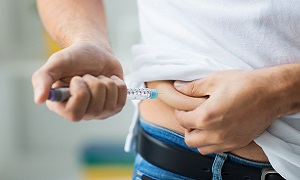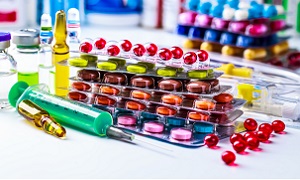Best Doctors in India for Diabetes treatment
Best Hospitals India for Diabetes Treatment
Wockhardt Hospitals, Mumbai
- City: Mumbai, India
Hospital Highlights:
- Wockhardt Hospitals were established in the year 1973, originally called First Hospitals and Heart Institute.
- Wockhardt Hospitals are super specialty health care networks in India, nurtured by Wockhardt Ltd, India’s 5th largest Pharmaceutical and Healthcare company.
- Wockhardt Hospitals is associated with Partners Harvard Medical International, an international arm of Harvard Medical School, USA.
- Wockhardt Heart Hospital performed India’s first endoscopic heart surgery.
- The hospital has a state-of-the-art infrastructure equipped with the latest technologies and modern equipment.
- It has special Centers of Excellence dedicated to the major specialties to provide hassle-free and high-quality clinical care.
Pushpawati Singhania Hospital & Research Institute, New Delhi
- City: New Delhi, India
Hospital Highlights:
- Established in 1996, Pushpawati Singhania Research Institute is one of the top hospitals in the NCR region, as well as one of the top facilities in India for gastroenterology. The hospital is one of South Asia’s first institutes in medical and surgical treatment for diseases related to digestion.
- The hospital is equipped with state-of-the art facilities coupled with the latest equipment as well as renowned consultants from various parts of India as well as other parts of the world.
W Pratiksha Hospital, Gurgaon
- City: Gurugram, India
Hospital Highlights:
- W Pratiksha Hospital, Gurugram, is one of the best hospitals in the NCR region. It is also a top hospital in India for IVF. Since its inception, the hospital has performed over 5500 successful IVFs. The hospital also specializes in gynecology.
- With over 20 years of experience in providing quality healthcare, the hospital is known as one of the most trusted and valued health providers in India.
- Equipped with world-class medical facilities and advanced technology, the hospital’s doctors and clinicians also have a track record of delivering excellent results. The hospital is also known for focusing on preventive well-being as much as on curative treatment.
- The hospital has earned the trust of its patients, by providing the best available treatments at affordable costs.
Narayana Superspeciality Hospital, Gurugram
- City: Gurugram, India
Hospital Highlights:
- Situated near DLF Cyber City, Gurugram, Narayana Superspecialty Hospital is one of the top medical facilities in the Delhi NCR region, catering to the needs of the people. Known for its commitment to quality medical care and patient service, the hospital is a state-of-the-art facility with planned and well-equipped sections, which includes a spacious OPD area as well as comfortable patient rooms.
- It is the closest super-specialty hospital from Indira Gandhi International Airport towards Gurugram, and also the nearest super specialty hospital from DLF Cyber City. It is also close to major residential areas in Gurugram.
- It is part of the renowned Narayana Health Group. Established in 2000, by Dr. Devi Shetty, a renowned cardiac surgeon, it has grown to be one fo India’s leading healthcare groups.
Sir Ganga Ram Hospital, New Delhi
- City: New Delhi, India
Hospital Highlights:
- Sir Ganga Ram Hospital, New Delhi is known to provide the latest medical procedures with the latest technology in all of its units.
- The hospital has a team of reputed doctors, nurses, and healthcare professionals that ensure that patients receive quality care at affordable costs.
- Staffed with a team of highly qualified doctors, dedicated nurses, and paramedical and non-medical staff, the hospital aims to lead in healthcare delivery, medical education, training, and research.
- As per the vision of the founder, the hospital also provides free treatment to the economically weaker sections of society.
- Sir Ganga Ram Hospital also provides training to young doctors under the Diplomate in National Board(DNB) program. The DNB program at the hospital was started in 1984 and it is known for currently running the maximum number of DNB specialties in the country. It also has the distinction of having the first bone bank in India.
CK Birla Hospital, Gurugram
- City: Gurugram, India
Hospital Highlights:
- The CK Birla Hospital in Gurugram is a NABH-accredited multi-specialty hospital.
- The hospital strives to increase the quality of healthcare by focusing on UK NHS nurse and midwife training requirements. Policies and practices derived from the National Institute for Health and Treatment Excellence (NICE) recommendations in the United Kingdom ensuring that a strong focus on safety, high-quality clinical care, and sanitation is maintained.
- The hospital’s cutting-edge technology and facilities allow for real-time communication and seamless collaboration among caregivers, ensuring accuracy and the best possible results. Those with foreign experience and accreditations make up part of the hospital’s team of clinicians.
KIMS Hospital, Hyderabad
- City: Hyderabad, India
Hospital Highlights:
- KIMS Hospital (a brand name of Krishna Institute of Medical Sciences) is one of the largest and best multi-speciality hospitals in Hyderabad. The hospital provides various treatments to an enormous number of patients.
- The hospital has a capacity of more than 3000 beds. KIMS Hospitals offers different healthcare services in more than 25 specialities and super specialities.
- The hospital is equipped with modern medical equipment and technology. It has robotic equipment to provide minimal invasive techniques for patients.
- The hospital is aimed at providing world-class healthcare facilities and services at an affordable cost for patients.
- The various specialities and departments of the hospital include neurosciences, gastroenterology & hepatology, robotic science, reproductive sciences, dental science, oncological sciences, organ transplantation, heart and lung transplantation and mother and child care.
Fortis Hospital, Shalimar Bagh
- City: New Delhi, India
Hospital Highlights:
- Fortis Hospital in Shalimar Bagh is a multi-super specialty hospital that strives to provide world-class patient care by leaving no stone unturned.
- Fortis, Shalimar Bagh, with 262 beds and a 7.34-acre footprint, provides the best level of medical care through its team of doctors, nurses, technicians, and management professionals.
Reliance Hospital, Mumbai
- City: Mumbai, India
Hospital Highlights:
- Reliance Hospital is one of the best super-specialty care hospitals in Navi Mumbai.
- The main purpose of this hospital is to become a trustworthy place for the best health and hope for society. The hospital is well connected to the suburbs of Mumbai and Navi Mumbai.
- The hospital has various specialty departments, viz., Accident & Emergency, Anesthesiology, Dental Services, Dermatology, Diabetology, Dietetics Nutrition, Endocrinology, ENT, Gastroenterology, General Surgery, Gynaecology And Obstetrics, Hepato Pancreato Biliary Surgery, Infectious Disease, Internal Medicine, Interventional Radiology, Laboratory Medicine, Minimal Access Laparoscopic Surgery, Nephrology, Neurosciences, Opthalmology, Orthopaedics, Paediatrics, Pain Management Palliative Care, Physical Medicine Rehabilitation, Plastic And Reconstructive Surgery, Psychiatry, Pulmonary Medicine, Radiology, Rheumatology, Transplant, Urology Andrology, Vascular Surgery
Lilavati Hospital & Research Centre, Mumbai
- City: Mumbai, India
Hospital Highlights:
- Lilavati Hospital & Research Centre is India’s premier multi-speciality tertiary care hospital and has been recognised as a global medical excellence centre.
- Lilavati Hospital & Research Centre has built an unrivalled level of trust with its patients over the years, thanks to a solid foundation that comprises cutting-edge facilities, the best medical competence, research, education, and charity endeavours.
- The hospital is quite proud of the fact that it now serves patients from all kinds of backgrounds, not just from the United States but from all around the world.
- The hospital has a total of 323 beds, one of the largest Intensive Care Units (ICUs), 12 Operation Theatres with modern amenities, over 300 consultants, and almost 1,800 personnel.
DIABETES
Diabetes mellitus or diabetes is a metabolic condition characterized by high blood sugar (blood glucose) levels associated with other manifestations. It affects the way your body uses blood glucose.
Glucose is a fundamental source of energy for the cells that form your tissues and muscles. Hence, it is absolutely necessary for the body and is the main source of fuel for functioning of the brain.
Depending on the type of diabetes, the causes of the disease vary. It leads to high sugar levels in your blood, which may cause serious health complications. Insulin is a hormone that takes sugar into the cells for storage to be used for energy later.
Types of Diabetes
Chronic diabetes is of two types- Type 1 Diabetes and Type 2 Diabetes. There are also reversible diabetes conditions comprising prediabetes and gestational diabetes.
Type 1 Diabetes: It is an autoimmune disorder in which the immune system attacks and destroys the pancreatic cells. These cells make insulin. Nearly 10% of the population suffering from diabetes has Type 1 Diabetes.
Type 2 Diabetes: When the body becomes resistant to insulin and sugar builds up in the blood, the person suffers from Type 2 Diabetes.
Prediabetes: When the blood glucose is higher than normal but not high enough to categorize as Type 2 Diabetes, the person has Prediabetes.
Gestational Diabetes: When a pregnant woman has high blood sugar, she is suffering from Gestational Diabetes. The cause behind the gestational diabetes is the insulin-blocking hormone produced by the placenta. This type of diabetes resolves when the gestation period (duration of pregnancy) ends after the delivery of the baby.
Symptoms of Diabetes
The increase in the blood sugar level governs the symptoms of diabetes. Patients of Prediabetes and Type 2 Diabetes may not suffer from any symptoms initially. However, the patients experience the symptoms early in Type 1 Diabetes, which are severe. Let’s know the symptoms of Type 1 and Type 2 Diabetes.
- Increased hunger and thirst
- Blurred vision
- Fatigue
- Unexplained weight loss
- Irritability
- Sores that heal slowly
- Frequent urination
- Frequent infections like a skin infection
Causes of Diabetes
Type 1 Diabetes : The immune system plays a vital role in fighting against viruses and bacteria. However, in Type 1 Diabetes, the immune system attacks and destroys the cells present in the pancreas and responsible for producing insulin. Because of this, only a little insulin is present in your body. Also, the sugar builds up in the blood rather than getting transported to the cells. Genetic susceptibility and environmental factors are responsible for Type 1 Diabetes.
Prediabetes : Prediabetes often leads to Type 2 Diabetes.
Type 2 Diabetes : The cells acquire resistance against the action of insulin in this type of diabetes. The pancreas cannot make enough insulin to prevent this resistance. The sugar builds up in the blood rather than transporting to the cells for energy. Environmental and genetic factors cause Type 2 Diabetes. Obese people have higher chances of developing this type of diabetes. However, not every person suffering from Type 2 Diabetes is obese or overweight.
Gestational Diabetes : To maintain the pregnancy, the placenta produces hormones during the gestation period. Your cells become more resistant to insulin because of these hormones. The pancreas produces extra insulin to outscore this resistance. When the pancreas is not able to keep up very little amount of glucose enters the cells leaving behind much of it in the bloodstream. This causes Gestational Diabetes.
Diagnosis of Diabetes
The symptoms of Type 1 Diabetes appear early and often compel the patient to check for his/her blood glucose levels. Contrary to this, the symptoms of Type 2 Diabetes and Prediabetes are gradual. Screening of the following people is a must:
- People who are more than 45 years old must check for the symptoms of diabetes and undergo screening for blood sugar levels. If they find the blood sugar levels normal, then they must undergo screening every three years.
- A person who has Prediabetes must check for Type 2 Diabetes once in a year.
- People with a BMI (Body Mass Index) of more than 25 (23 for Asian-Americans) having additional risk factors like heart disease, high blood pressure, or abnormal cholesterol levels must undergo screening for diabetes.
- Women who suffer from gestational diabetes must check for diabetes every three years.
Treatment Options for Diabetes
A healthy and balanced diet along with an exercise regime is a significant part of managing diabetes and your health.
Treatment Options for all types of Diabetes.
Healthy diet
There is no specific diet that you must follow for diabetes. Vegetables, fruits, whole grains, and proteins are the core of a balanced and healthy diet. They are high in fiber and provide nutrition to the body. The diet is low in calories and fat while cutting down saturated fats and refined carbohydrates. You must take sweets once in a while.















